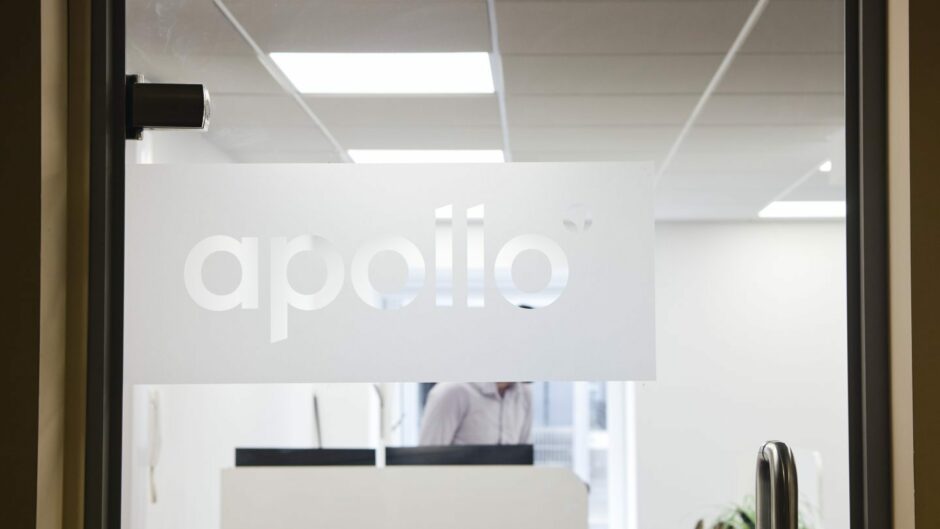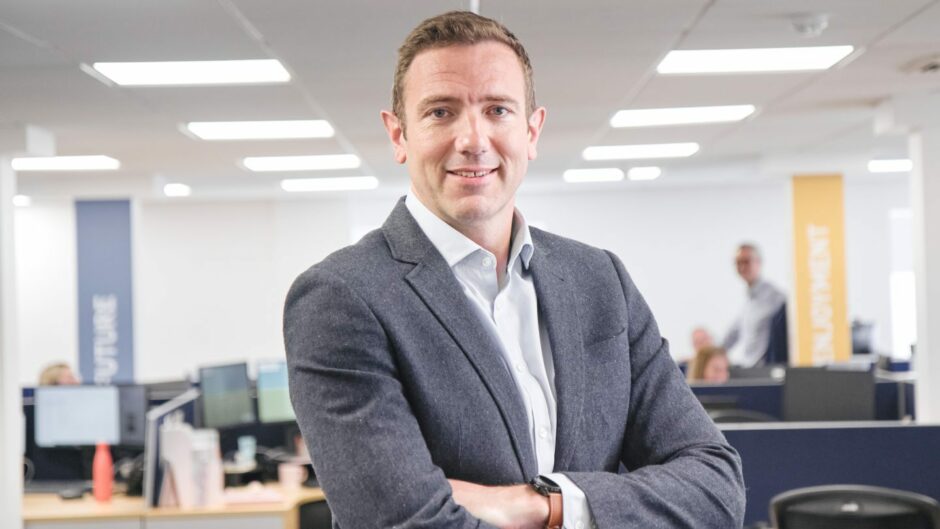
It is all systems go for Apollo as the Aberdeen-headquartered firm readies itself for a “bow wave” of opportunities.
While the name and ethos remains, the engineering and consultancy business has enacted a brand update, driven by ongoing growth and success in new areas.
Apollo managing director, Ryan Menzies said: “Covid-19 allowed us to lift up the bonnet, have a good look at what’s going on, and take stock.
“There are numerous challenges on the energy industry – trying to balance security, affordability and sustainability – and now we’re starting to get a handle on what the future looks like. It’s a good time to set out our stall and show how we can help overcome those trials.”
While the changes are, to a certain extent, more cultural than tactile – a new logo perhaps being the most obvious alteration – they are designed to reflect the markets Apollo is in.
And a part of the revamp, the business has clearly defined its four pillars – oil and gas (including platform electrification), offshore renewables, onshore and nuclear.
Lofty growth targets
As with any corporate rebrand, growth is also an underlying objective for the firm, which is majority-owned by Global Energy Group.
Apollo is putting the finishing touches on a three-year plan, aimed at expanding the business towards annual turnover of £30 million by 2025, up from about £15m today.
“That sounds quite aggressive growth,” acknowledged Mezies, “but over the last couple of years we’ve grown from about £8m to £15m.
“There are variants in there because it depends on projects going through the business. Getting up to towards that £30m figure is achievable given the state of the markets and the opportunity that is in front of us. The challenge will be people, and the deliverability of the work.”
Recruiting during a skills shortage
To that end, Apollo is plotting a significant employment drive to add to the 112 workers it currently has in Aberdeen, Bristol, Nottingham and Edinburgh.
In the coming years, the company plans to take on dozens of new employees, with the end goal of taking its headcount “beyond 200 people”.
That in itself could prove tricky though, with the industry already suffering from a well-documented skills shortage, something that is tipped to worsen.
Menzies described the current number of vacancies as “frightening”, adding that “from an Aberdeen centric point of view”, the revolving door is “starting to spin pretty fast again”.

Luckily, industry has time to prepare, and Apollo has strategies to address the issues, including adding to the graduates it has already taken on.
Menzies said: “I know there can be quite a strong rhetoric that people don’t want to work for oil and gas businesses, I’d refute that very strongly.
“We’ve not had anyone turn us down, and the number of people that are interested in the opportunities we put out there is still very high. What’s more important is a very strong culture.”
Eyes peeled for more investment
As tends to be the case, cash is needed to fuel the fire, and Menzies confirmed that Apollo is “currently looking for more investment”.
On top of continued organic progression, Apollo is also eyeing up opportunities for “accelerated growth”, including possible synergistic acquisitions.
“That will be particularly relevant when we’re aiming towards that £30m figure. To hit that, there will need to be organic growth, as well as dynamic growth,” said Menzies.
Apollo’s bullish outlook is mirrored across the energy industry generally, a marked change on a year ago.
New North Sea oil and gas schemes are getting sign off, in tandem with countless low carbon initiatives in various sectors, such as offshore wind, hydrogen, and carbon capture and storage.
Scotland’s supply chain is readying for a huge surge in work, one it is not yet ready to cope with, and there are fears opportunities may be lost overseas.
With skin in all the different aspects of the game, Apollo is already beginning to see opportunities translate into work.
Menzies said: “There has been lots of early engagement. It terms of work, we are seeing a notable uptake in inquiries, tendering, and live work for projects related to Scotland.
“It has taken time, and I was a little bit sceptical for a year or two as to how much was going to be available to the supply chain and when.
“Everyone was getting very excited when all the announcements came out, and the predictions were made about the volume of work coming down the road.
“But then the question is, where is that work? When is it? What does it look like? What do I need to get ready for?”
He added: “There’s more work than the supply chain can handle currently. It’s too much for one company, and the prize will be shared about.”
Recommended for you


 © Supplied by Apollo
© Supplied by Apollo